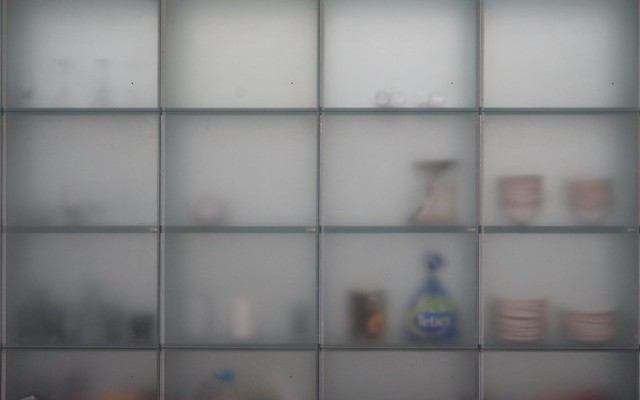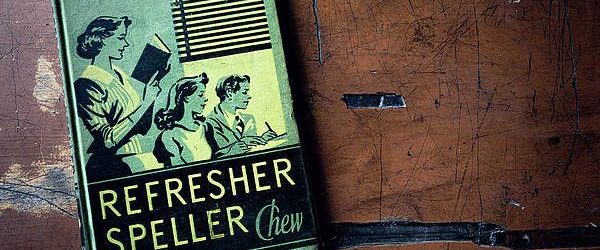There is a word I love in Italian for which there is no equivalent in English: dimenticatoio, the place for things you want to forget, or have forgotten already. You might say, for instance, that an old, cherished custom has ended up in the dimenticatoio, a concept you would likely render in English with the phrase ‘has fallen into oblivion’. However, oblivion is not a place. It’s an abstract state of being, or rather of not being. Whereas the linguistic shape of dimenticatoio – formed by the verb dimenticare, ‘to forget’, and the suffix -oio, denoting a place or container for the activity described by the root – evokes something concrete. It could be a room, or a large box. For some reason, I visualise it in my head as a cupboard.
The word is at least 500 years old. I love it for its inherent absurdity. In most languages, the metaphor for something being forgotten is that it has been lost. So why would you need a place to store these lost things? And, if such a place existed, could you visit it again and retrieve said items? Would this forgetting place not be more akin to a warehouse, or even an archive?
I am also intrigued that the word first appeared during the Renaissance, a time when writers and philosophers were rediscovering the ancient arts of memory.
Classical rhetoricians (including Cicero) had to develop elaborate rote-learning techniques because any speech delivered using notes was considered inherently less truthful. The principal of these techniques involved populating vast imaginary palaces with objects symbolising each passage of the speech. When delivering the speech, the speaker would simply re-enter the palace and pick up each object one by one, in the correct order.
Renaissance philosophers such as Giulio Camillo and Giordano Bruno revived these practices with a hermetic twist, for they believed the act of building and furnishing these imaginary palaces had the power to reveal hidden truths. Yet in those same years the Italian language, as if to mock them, had come up with a word to describe a place where you put things in order to forget them.
It’s possible that similar words exist in other languages. The only one I am aware of is the French noun oubliette. However, that word is far more truculent: it describes the historical place of torture known in English as a ‘bottle dungeon’. This was typically a cell deep in the recesses of a castle, accessible via a single entrance, sometimes in the form of a hole. As the name suggests, an oubliette was designed to house a prisoner for an indefinite period of time. These were people you wanted the world to forget.
The first documented use of oubliette is attributed to Balzac in 1850, long after the practice had been discontinued. From there, the word has acquired a metaphorical use similar to the Italian dimenticatoio, albeit with darker overtones.
All in all, I prefer my far more benign forgetting cupboard. As a child, I always pictured said cupboard to be a meat safe like those used before the invention of the refrigerator. If something had to be placed in such a cupboard, it would have to be done so in reasonably neat fashion. It wouldn’t ‘fall’ or be magicked out of existence. But then – I reasoned – if the forgetting place was a cupboard, it would become cluttered over time and eventually run out of space, so that in order to put something else in it, you would have to take something out first. Un-forget it. Re-remember it. How would that even work?
By this stage, you might be wondering if dimenticatoio shares the same etymology as the English word dementia, to which the answer is yes: the Latin root of di-menticare literally means ‘to take something out of your mind’. The English verb ‘forget’ is Germanic in origin and doesn’t carry the same meaning, but its opposite, ‘remember’, is Latinate and does: it means ‘to bring back to mind’. The equivalent Italian verb, ricordare, means ‘to bring back to heart’. To re-hearten, if you will.
All of these metaphorical comings and goings are very suggestive to me. If you can bring something back to the mind, or to the heart, it means that you stored it somewhere that wasn’t quite oblivion, a place of no return. Perhaps in your forgetting cupboard.
The ancient Greeks imagined a river, the Lethe, where the souls of the dead would drink to forget their past lives in preparation for reincarnation. The Roman poet Virgil transplanted this myth to the region of Campania, where a river by that name existed – and still does. It, too, evokes the possibility that a culture’s ability to forget may be a resource, and that forgetting may have a social purpose. It’s an idea that we may find newly relevant at a time when we store our memories ‘in the cloud’ – in other words, in giant server banks very much on Earth, which we nonetheless imagine to be ethereal, eternal and infinitely vast.
Image: Oliver / Flickr
Read the rest of Overland 234
If you enjoyed this piece, buy the issue




